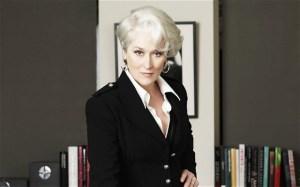This week I was interviewed for a very interesting piece in The Telegraph about gender in the workplace. I thought I’d add the whole interview that I did here because it got me thinking about these issues.

Is gender real or constructed?
Both! Like all aspects of experience gender is biopsychosocial: a long word which means that it is made up of biological, psychological and social strands all of which are woven together in complex ways.
For example, genetic information from our parents determines that we are born with certain genitals. The ideas which are present in our culture about what it means to have certain genitals have a big impact on how we are treated and the expectations that others have of us. That treatment means that we get positive or negative responses from others for certain behaviours, and this impacts on the connections that our brains make and the feelings that we have. All of this make us more or less likely to make certain choices in life, and those choices feed back on our brains and bodies, and on the wider society around us.
So our gender is shaped by the ‘constructions’ present in the world around us (about what it means to be masculine or feminine for example). At the same time we have a very real experience of our gender because it is laid down in our brains and bodies and psyches over years of life experience. That doesn’t mean that gender isn’t fluid or changeable however: things alter as we make choices in our lives, and the world around us also shifts over time in the way it views gender.
Why do we stereotype different gender roles?
I suspect that there are many reasons. There seems to be a human tendency to put people in boxes in order to create simple rules of how to operate. However, of course, in different times and places we emphasize different aspects of people and in different ways (e.g. gender, race, class, etc.). We have a long history of our society being set up in a certain way, which benefits those in positions of power, and many of the gender stereotypes help to perpetuate that system: for example men being seen as better at business, and women as better at nurturing roles which are less highly valued.
What are the key differences?/Are men and women really that different?
The evidence is that there are relatively few gender differences which are consistent throughout the research. The differences between people of the same gender across cultures are far greater than the differences between people of different genders within the same culture. Also, it is very hard to know which of the differences that do seem to be present would still be there if people weren’t treated radically differently on account of their gender from an early age.
What do we perceive to be the characteristics pertinent to men, and to women?
Generally, in our culture at the moment, we divide gender into two (men and women). This is not the case for all cultures, some of which have more recognition of the diversity within the genders and/or recognition of intersex people and other genders. In our culture at present men are perceived to be more rational, less emotional, physically stronger, more aggressive, more focused, and having more agency and responsibility. Women are perceived to be more emotional, more nurturing, more concerned about other people, and better at multitasking, but less able to take risks.
How does this prejudice translate in a workplace environment?
It can mean that certain jobs are seen as being more appropriate to men, or to women, and we know that such biases do impact on who is chosen for the job, even if interviewers are trying to treat all applicants equally and to judge them without taking account of gender.
Does society place more importance on having masculine behavior general? And in the office? If so, why?
Some of the stereotypes of masculinity are seen as being the things that are necessary to do well in the office – such as being unemotional, able to take risks, and focused on tasks. However, of course, many of the stereotypes associated with femininity are also valuable in managers and high up roles, for example multi-tasking and being good with people. Also there are many men who display more stereotypically feminine traits, and vice versa.
What issues, if any, arise from women adopting masculine personas in the office and vice versa?
Women are often placed in a double bind at work. If they adopt ‘feminine’ characteristics then these are undervalued culturally and they are given less well rewarded positions. However, if they adopt ‘masculine’ characteristics they are often seen as un-feminine and criticized for this (e.g. a man is seen as assertive while a women is seen as domineering, a man is seen as rational while a woman is seen as cold, etc.)
How can we reach a point when both types of characteristics are viewed equally?
I think it’s a matter of detaching the characteristics from gender as much as possible, and society learning to value all these characteristics more equally rather than rewarding some far more than others. This is not just important for gender (where nurturing jobs are valued less than technical ones, for example), it is also important in relation to class (where manual labor is valued less than office work, for example).
